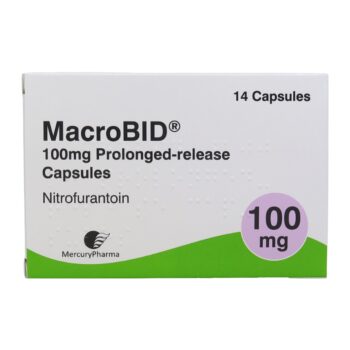What Is Trimethoprim?
Trimethoprim is a prescription antibiotic that treats bacterial infections, especially urinary tract infections (UTIs). Trimethoprim Tablets stop bacteria from making the proteins they need to grow and multiply, which helps your body fight off the infection more effectively. You can take it as a tablet or liquid, depending on your doctor’s advice.
What Is Trimethoprim Used For?
Trimethoprim is often prescribed for:
— Urinary tract infections (UTIs)
— Chest infections
— Ear infections
— Other mild to moderate bacterial infections
You can take it on its own or, in some cases, combine it with another antibiotic (sulfamethoxazole) to form co-trimoxazole for broader protection.
How Does Trimethoprim Work?
Trimethoprim works by:
— Blocking an enzyme (dihydrofolate reductase) that bacteria need to produce DNA
— Stopping the bacteria from growing and spreading
— Helping your immune system fight off the infection more easily
As a result, the body recovers faster, and the risk of complications is reduced.
How Should Trimethoprim Tablets Be Taken?
Always follow the instructions from your doctor or pharmacist. However, general guidance includes:
— Take as prescribed, usually once or twice a day
— Swallow the tablets with water (can be taken with or without food)
— Complete the full course, even if you start to feel better
— Doses may vary depending on age, kidney function, and the type of infection
While you may feel better early on, finishing the course is important to prevent antibiotic resistance.
Importantly, skipping doses or stopping early can lead to the infection returning or becoming harder to treat.
Are There Any Side Effects?
Like all medications, Trimethoprim tablets may cause side effects. However, most people only experience mild symptoms, if any at all.
Common side effects:
— Nausea
— Vomiting
— Mild rash
— Headache
Rare or serious side effects (seek help):
— Skin reactions (rash, peeling, blistering)
— Changes in blood cell levels
— Allergic reactions (swelling, difficulty breathing)
Therefore, if anything feels unusual, you should stop taking it and speak to a doctor.
Who Should Avoid Trimethoprim Tablets?
Trimethoprim may not be suitable if you:
— Have kidney problems
— Have a folate deficiency
— Are taking methotrexate, warfarin, or certain diuretics
— Are pregnant or breastfeeding (unless advised by a doctor)
Always let your healthcare provider know about any existing health conditions or medicines you’re taking.
How Should Trimethoprim Tablets Be Stored?
To keep the medicine safe and effective, make sure you store it properly. Additionally, storing it the right way helps prevent accidental damage or misuse. To do this, follow these storage tips:
— Store below 25°C in a dry place
— Keep in the original packaging
— Keep out of sight and reach of children
— Do not use after the expiry date


